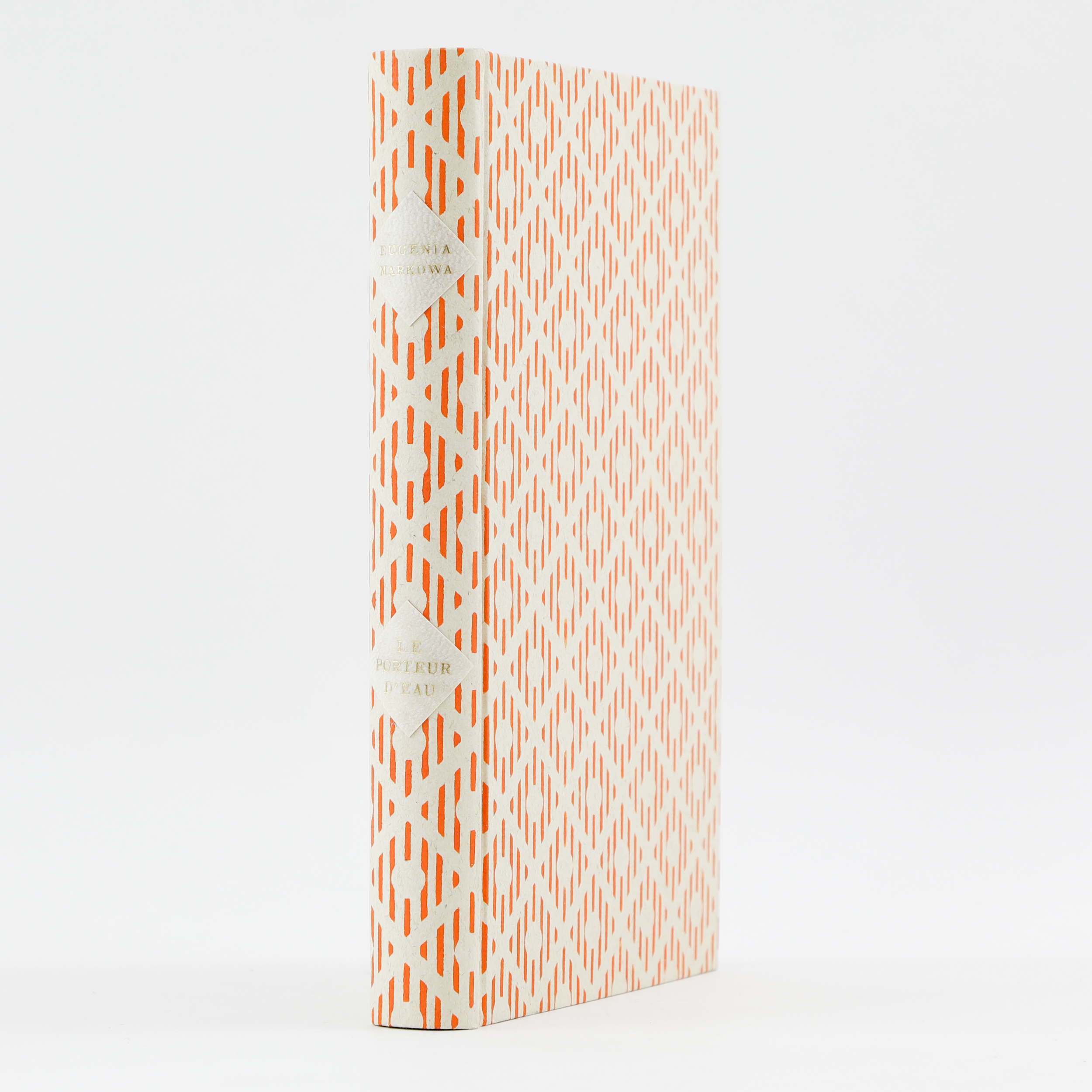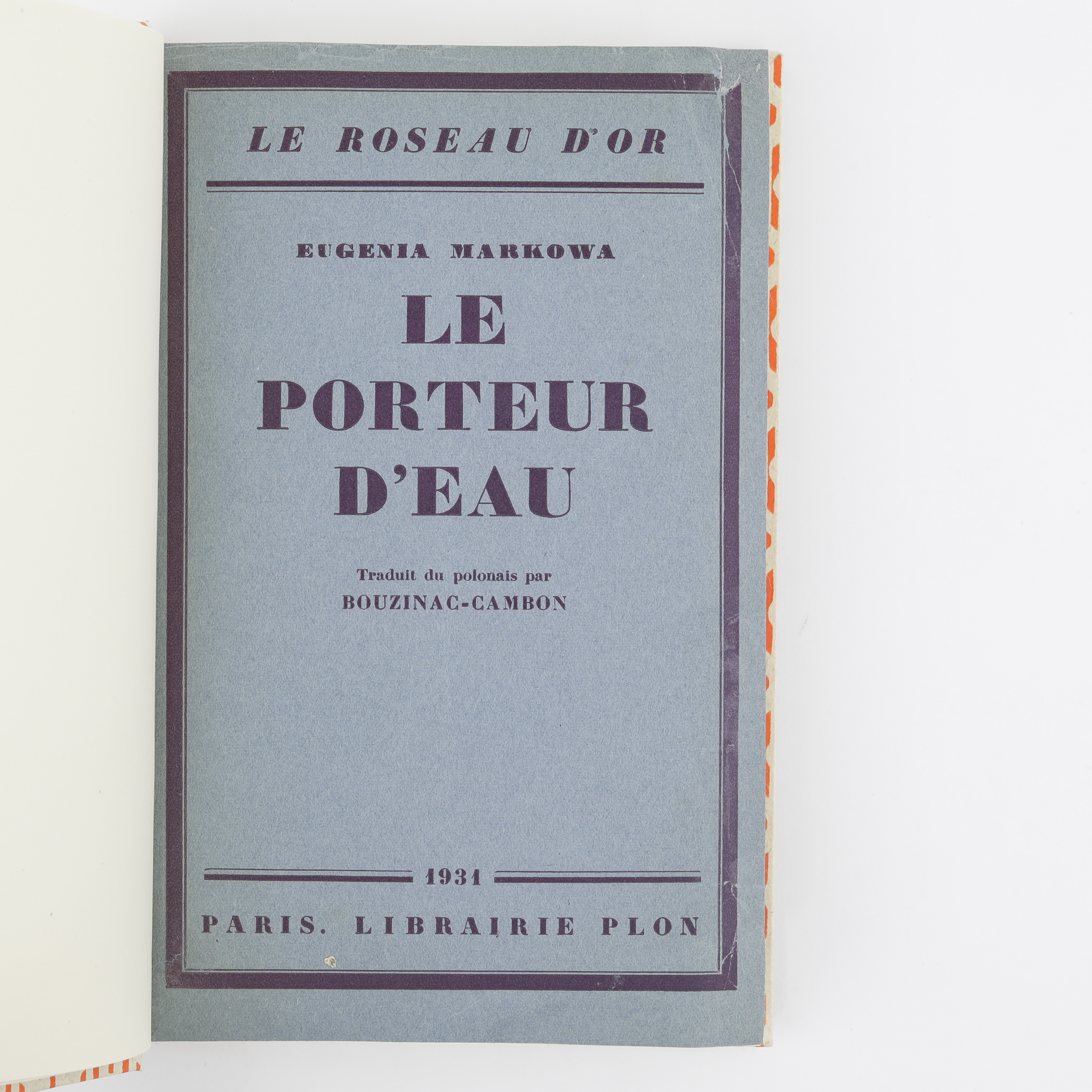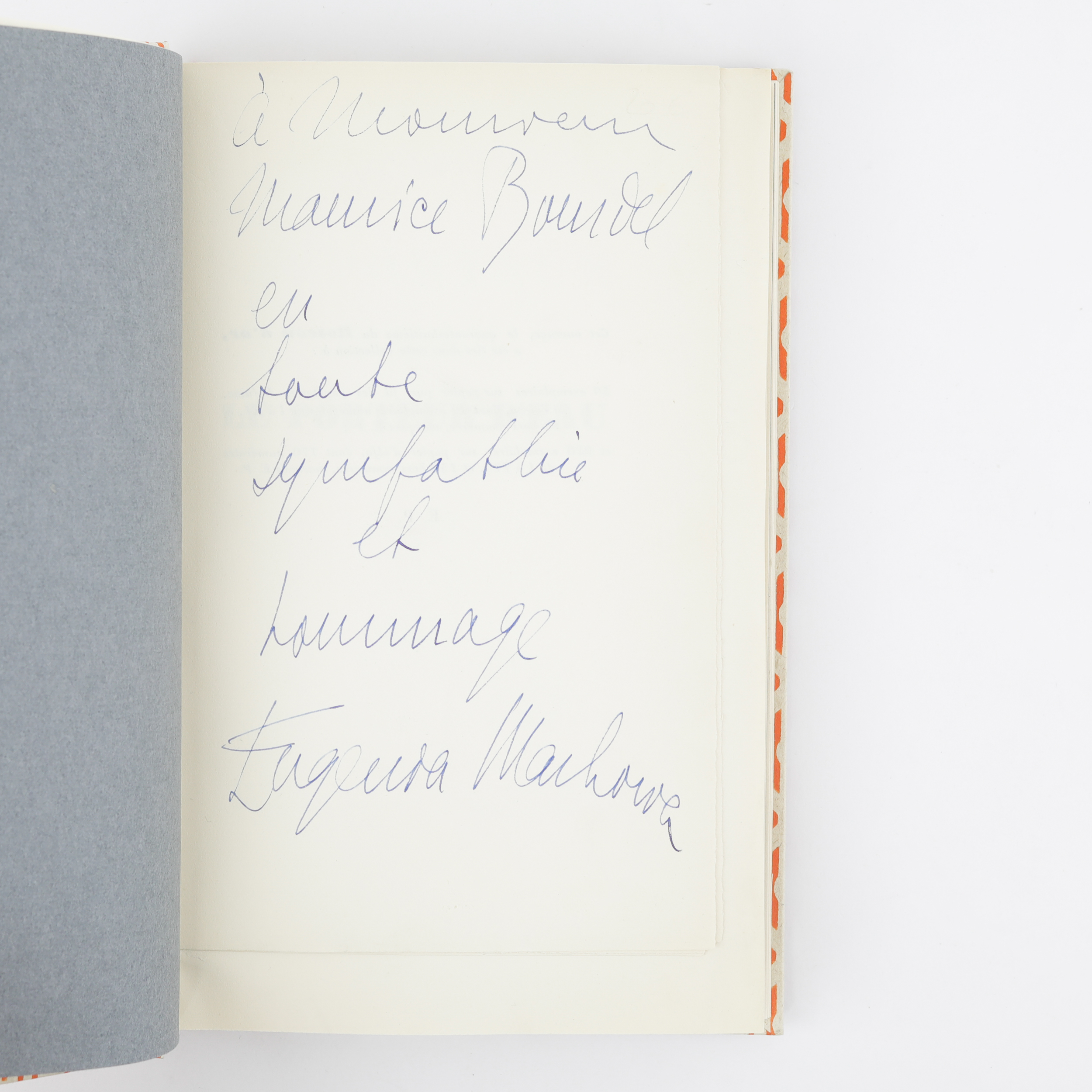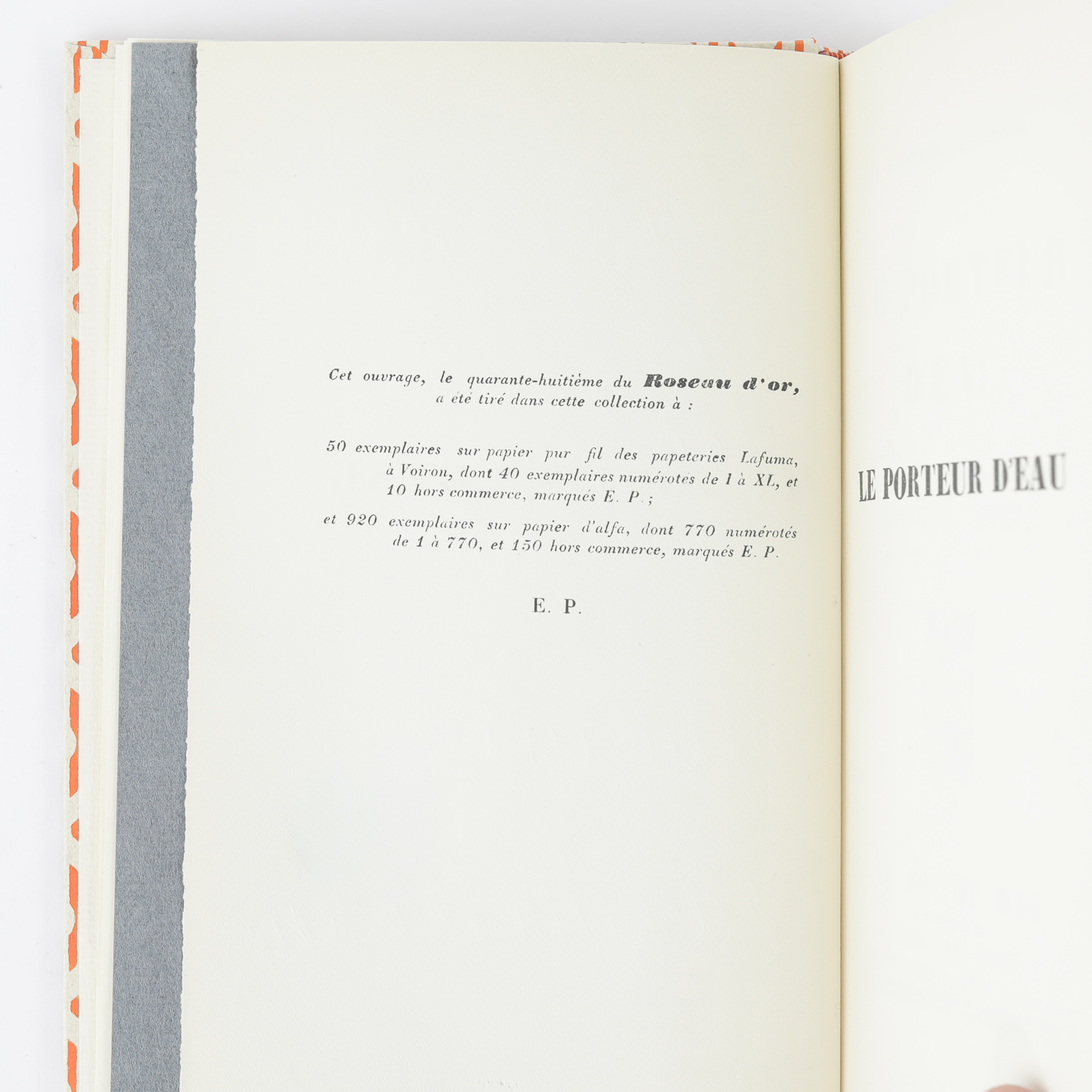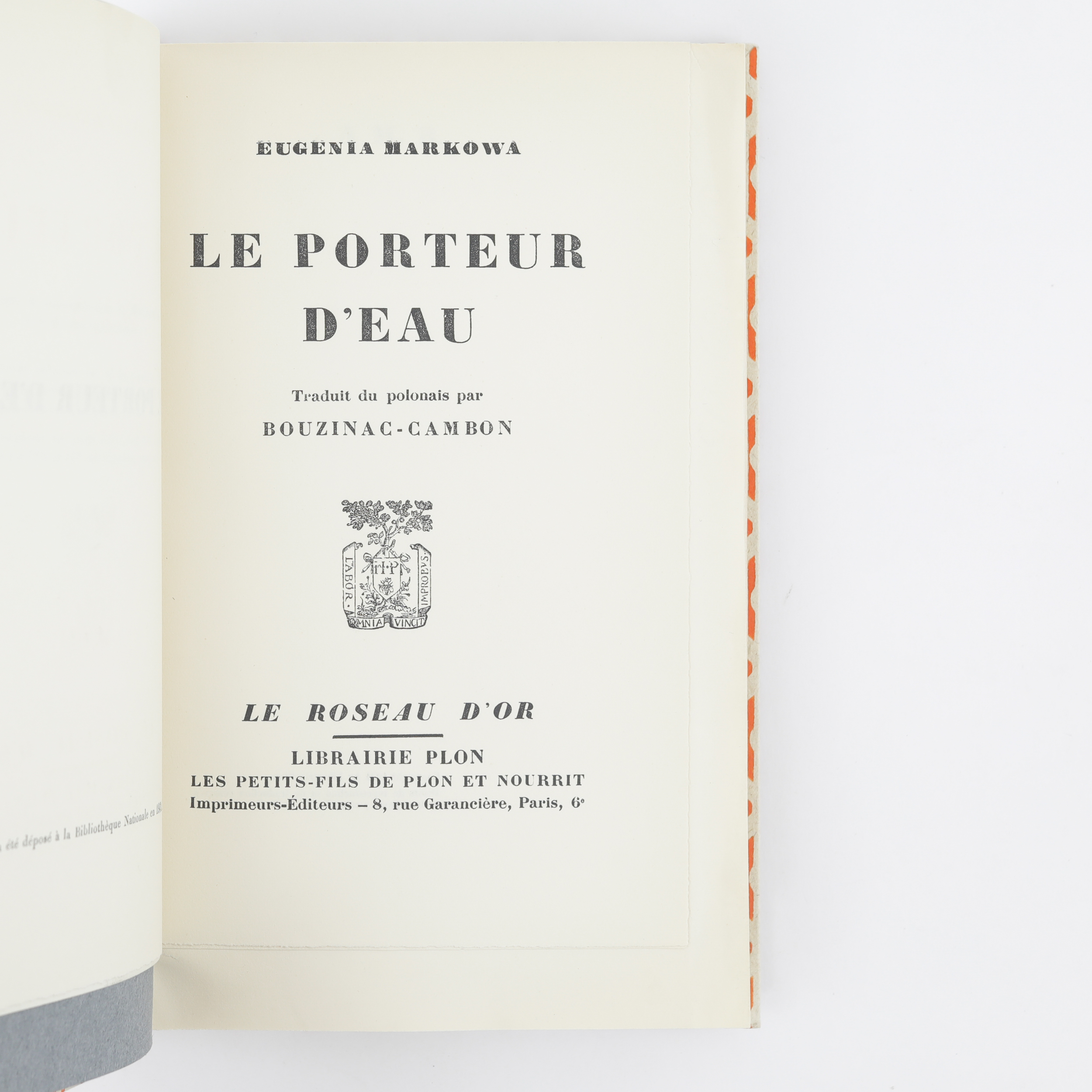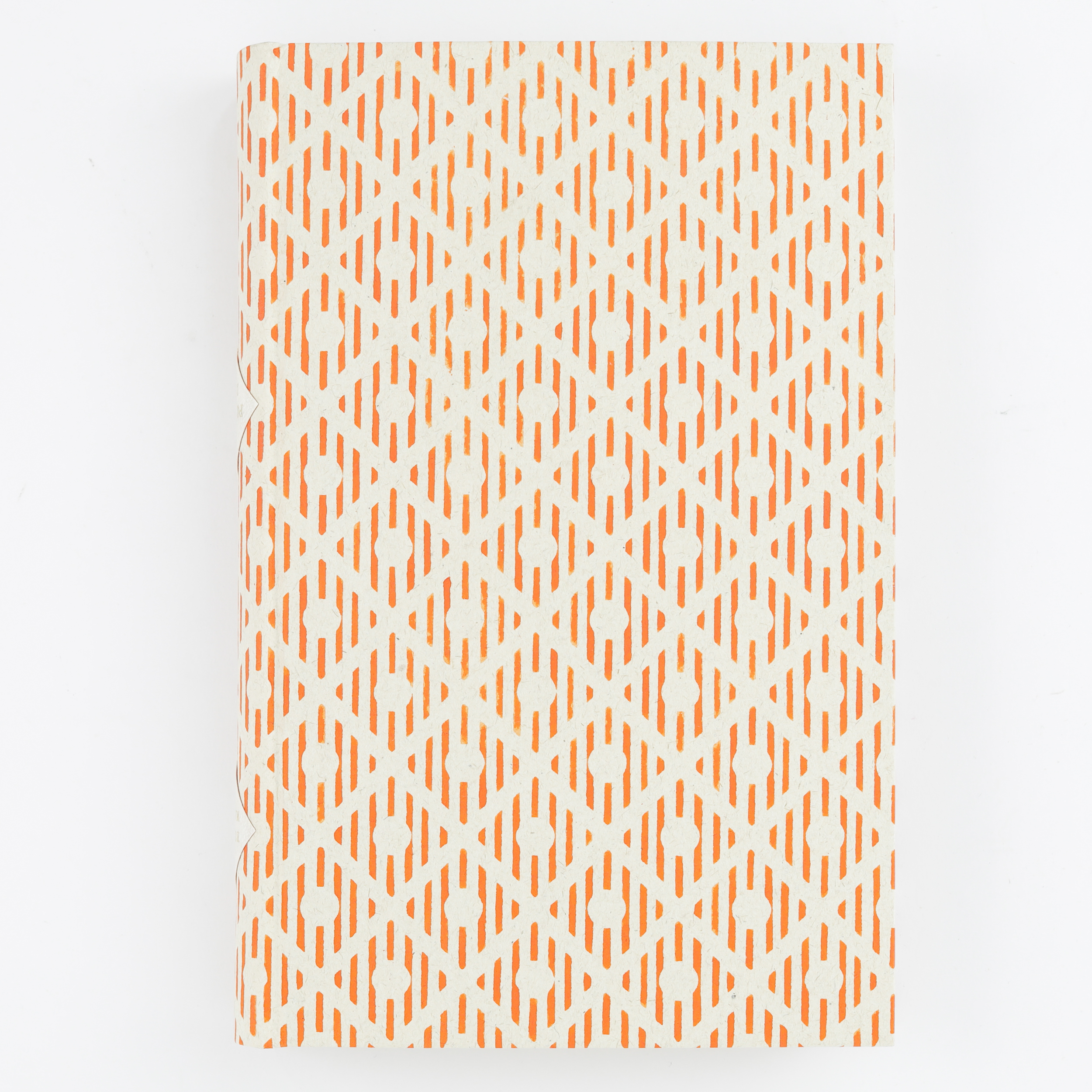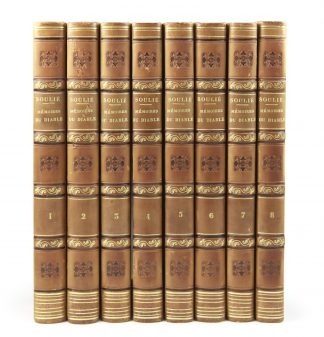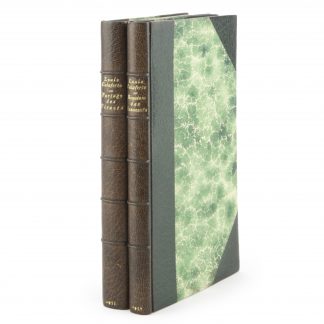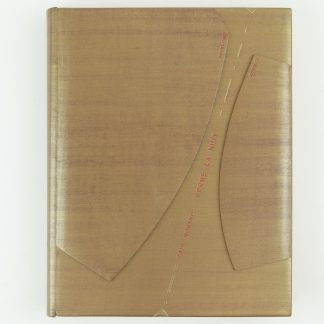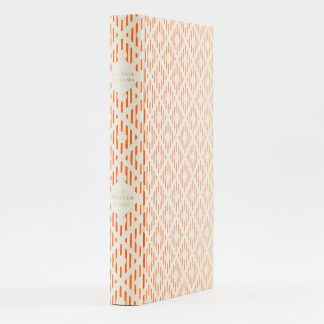Description
FIRST EDITION translated from the Polish by Bouzinac-Cambon.
ONE OF 50 NUMBERED COPIES ON PUR FIL LAFUMA PAPERthis one, ONE OF 10 EX. OUT OF COMMERCE, following 920 copies on Alfa.
RARE AUTOGRAPHIC SENDER SIGNED to Maurice Bourdelle (1889-1968), Managing Director of Plon Editions:
"to Mr
Maurice Bourdel
in any
sympathy
and tribute
Eugenia Markowa "
André Pierre gives an amusing summary of this novel in The Critical Fortnight : "story of a poor, simple-minded Jew who became a miracle-worker in spite of himself."
The critic of the literary magazine Le Domaine is more loquacious:
It is a work reminiscent of some of Tharaud's best books, of those in which their inspiration, the fruit of "meticulous and intelligent observation, has shown itself to be the happiest. The environment, the characters, the feelings, nothing is studied with the usual methodical clarity of the French, but everything is lively, truthful, imbued with that kind of wonder which is often at odds with the logic of things and which we nevertheless accept because it conforms to an instinctive taste of the spirit.
Eugenia Markowa (1895-1973), also known as Gina (or Guina) Szwarc, was born in Konin (Poland). In 1919 she married the sculptor and painter Marek Szwarc, who was also of Jewish-Polish origin. The following year, under the influence of the philosopher and theologian Jacques Maritain, the couple converted to Catholicism.
They settled in Paris where, for lack of money, they were forced to separate from their daughter for several years. Eugenia Markowa contributed articles on Parisian cultural life to the Polish press, publishing interviews with women artists. She published her first novels in the 1930s: Le Porteur d'eau, Toussaint (1935, illustrated by her husband), and Marguerite Sinclair, cabinetmaker (1937).
Eugenia and Marek Szwarc took refuge in the United States during the Second World War. There she composed The choiceA memoir of his life between 1920 and 1923, which includes fragments of his diaries, written in the form of letters to his daughter, Tereska Torrès. The latter destroyed the manuscript, so that the Polish edition of The choice is simply a translation of the French translation published in 1961. Tereska Torrès published her own memoirs under the title Le Choix: a memoir in three voices(French translation in 2012), and will look back at her parents' conversion and their family life. A journalist and resistance fighter, Tereska Torrès is also known for having written the first pulp book to feature lesbian relationships: Women's Barracks (1950).

